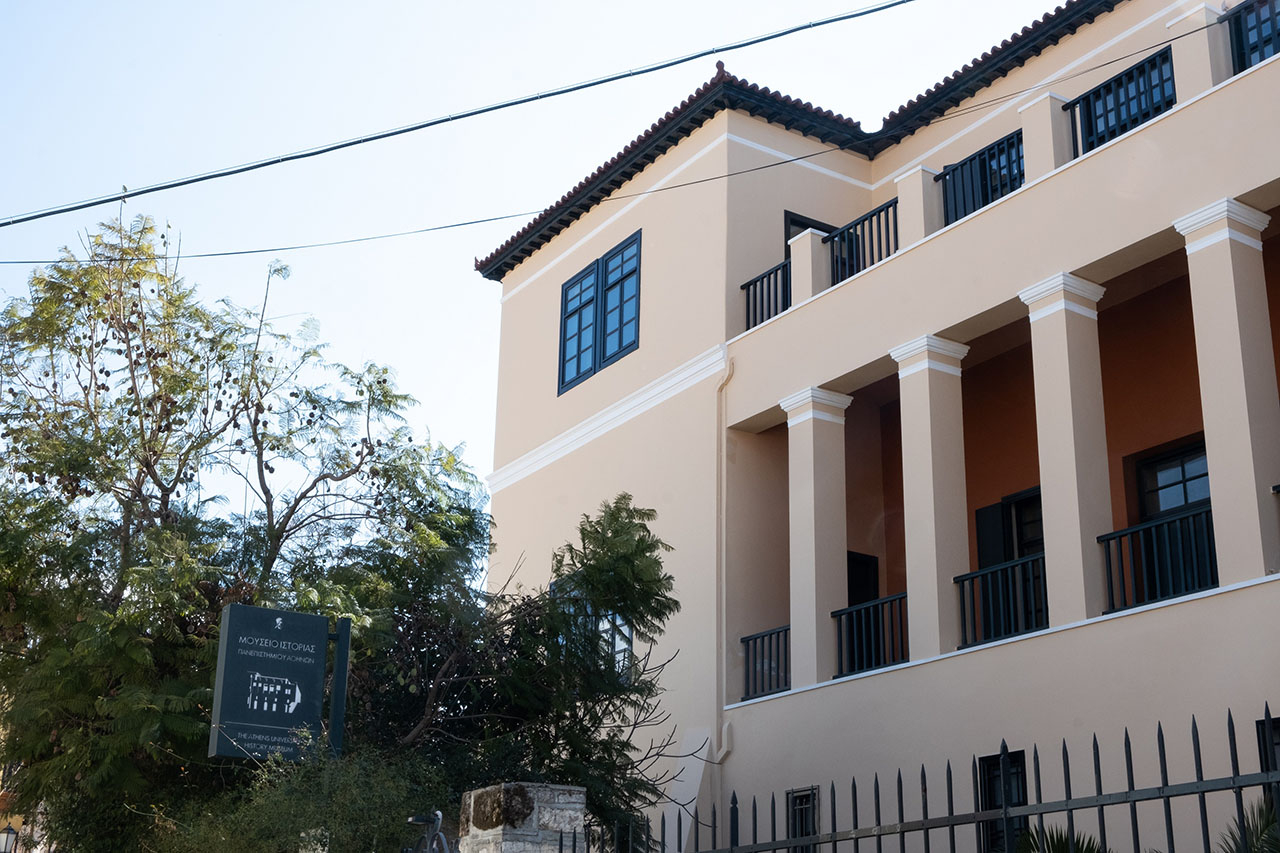Contact
ADDRESS
STAVROS NIARCHOS FOUNDATION
CULTURAL CENTER
364 Syggrou Avenue, Kallithea
TEL.
Box Office:
+30 213 0885700
Box Office email:
boxoffice@nationalopera.gr
Daily 09.00-21.00
info@nationalopera.gr
Register to our Newsletter


Music Dimitris Bakas
Sax Nouveau saxophone ensemble
Yorgos Lygeridis baritone saxophone
Lefteris Iordanidis tenor saxophone
Prodromos Michailidis tenor saxophone
Marios Tigkiridis alto saxophone
Idimelon Byzantine Choir
Ioannis Tsamis, Dimitrios Karamouzas, Theodoros Syrpis, Georgios Papageorgiou
Eftychia Veniota piano
Dimitris Bakas composition & sound art
Practical information:
- Audience members can enter all venues for free, on a first come first served basis. No advance booking is required.
- Due to the limited space available in many of the festival venues, some of the concerts will be repeated up to three times per day, to give the chance to as large an audience as possible to attend them.
- The concerts of the festival will be of short duration (from 25 to 40 minutes on average), so that audience members can attend more than one, if they wish so.
- The distance from one venue to the other is small, so that audience members have the chance to enjoy many of the festival events.
- The detailed programme will be available online at nationalopera.gr and digitalculture.gov.gr, while the printed programme that will be distributed to the public will include a map with all the venues, summary descriptions of the events, and QR codes referring to the detailed programme on the GNO website.
- All preventive measures against COVID-19 will be adhered to in all venues.
Starts at 17.00, 18.00 and 19.00 | 
Duration: approx. 30 min.
Capacity max. 50 person

R-evolution offers an artistic portrayal of the two main characteristics of Greek spirituality before the outbreak of the Greek War of Independence. It highlights the ideas of universality and innerness, which were both developed by the Fathers of the Church during the Byzantine period, survived during the Ottoman Rule, but changed after the Revolution. It is to this situation that the title refers: R stands for restricted (a term borrowed from cinema), therefore we’re talking about a restricted evolution.
The work is a kind of blend of heterogeneous elements, both in terms of music and orchestration, pieced together with a common artistic compositional aesthetic that marks the composer’s writing (apophatic composition). In this spirit, R-evolution brings together a Byzantine choir, a piano, a saxophone ensemble, and elements of electronic music, as a symbol of universality. At the same time the musical material conveys the innerness of the work’s aesthetic: it symbolises the innerness of Byzantine thought and of those Fathers of the Church known as Mystics, who express the deeper secret meanings and experiences of theological thought and inner life (mysticism).
The period when these concepts can be better expressed at a deeper level is the Holy Week. Holy Week is not only a journey through the Passion of Christ; it can also be the synopsis of the spiritual life of every Christian, who journeys through their own passion (the emptying process through which the individual divests oneself of their selfishness) and is led to Resurrection (the emergence of the person and of all-encompassing love).
This is what the second part of the work’s title (Passion) refers to. Both parts together make up a holistic image of the mystical theory of eastern Christianity. — D. B.
Dimitris Bakas
Born in Katerini, he studied composition with Theodore Antoniou. He continued postgraduate studies in contemporary music composition at the Goldsmiths, University of London, where he also completed his PhD thesis on the same subject under the supervision of professor Roger Redgate. During his doctoral studies he attended the postgraduate programme of electroacoustic music of Stanley Glasser Electronic Music Studios (Goldsmiths University, EMS). During the years 2010-2011 he was a visiting researcher at the Columbia University, New York. He has participated in international conferences, done residencies and received international distinctions. He is also active as a sound artist involved in works that are mainly displayed in museums. He is a member of the Hellenic Electroacoustic Music Composers Association (HELMCA), the Centre for Contemporary Music Research (KSYME), the Hellenic Society for Acoustic Ecology, and the Temp’Ora Project (Bordeaux, France).
Athens University History Museum
The Athens University History Museum is housed in the building known as “Kleanthis’ Residence” or “Old University” that is situated at 5 Tholou St in Plaka, underneath the Acropolis. Its history dates way back before the 18th century, making it one of the few surviving buildings of the pre-Ottoman era. It has the rare privilege to be housed in the same building that housed the first University of independent Greece (1837-1841), which was also the first University in the Balkan peninsula and the wider Eastern Mediterranean region. It first opened as a Museum in 1987, inviting visitors to learn all about the foundation of tertiary education in Greece and the academic legacy of the National and Kapodistrian University of Athens.
First Sacred Music Festival info leaflet available to read and download here
STAVROS NIARCHOS FOUNDATION
CULTURAL CENTER
364 Syggrou Avenue, Kallithea
Box Office:
+30 213 0885700
Box Office email:
boxoffice@nationalopera.gr
Daily 09.00-21.00
info@nationalopera.gr